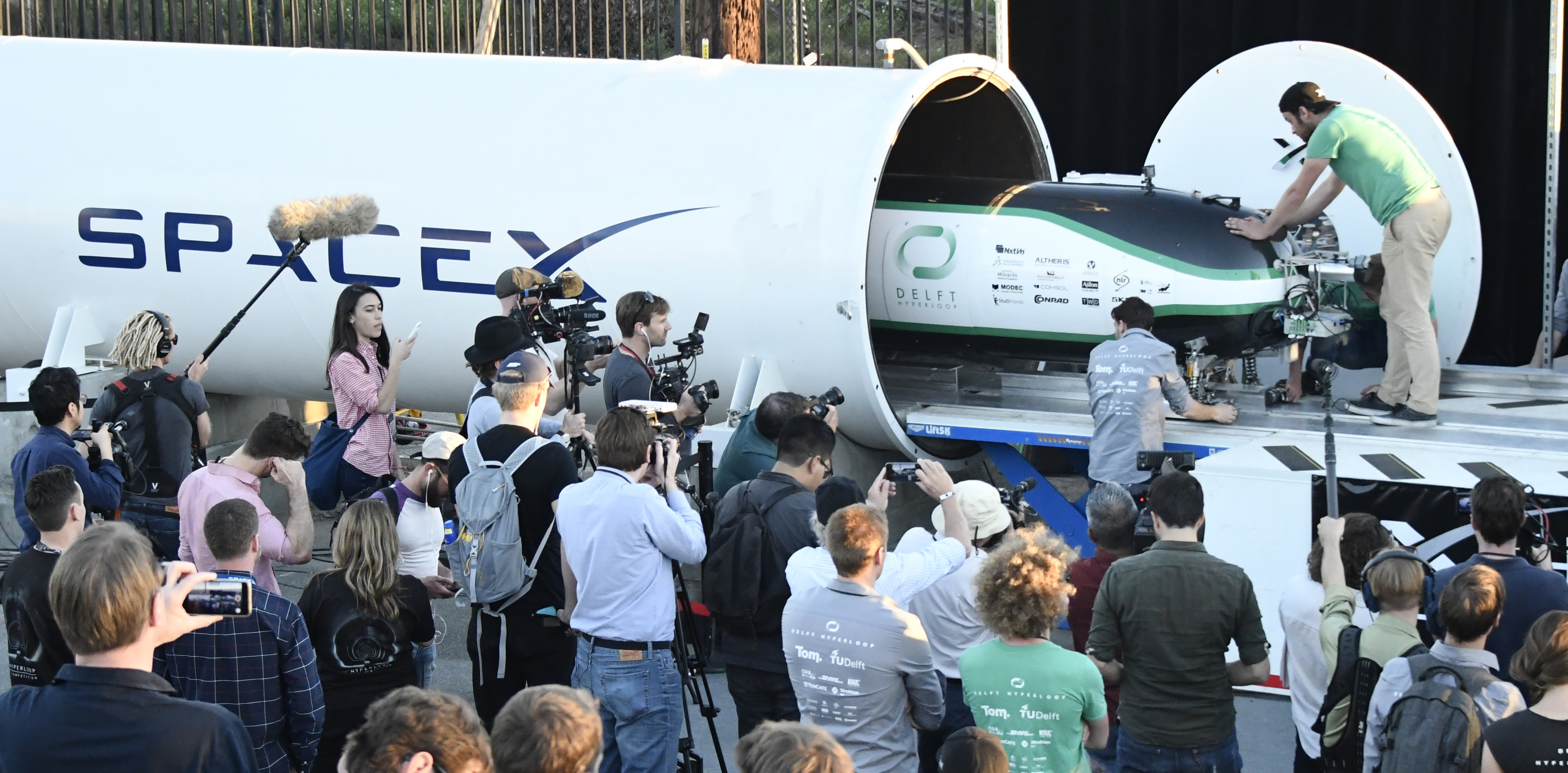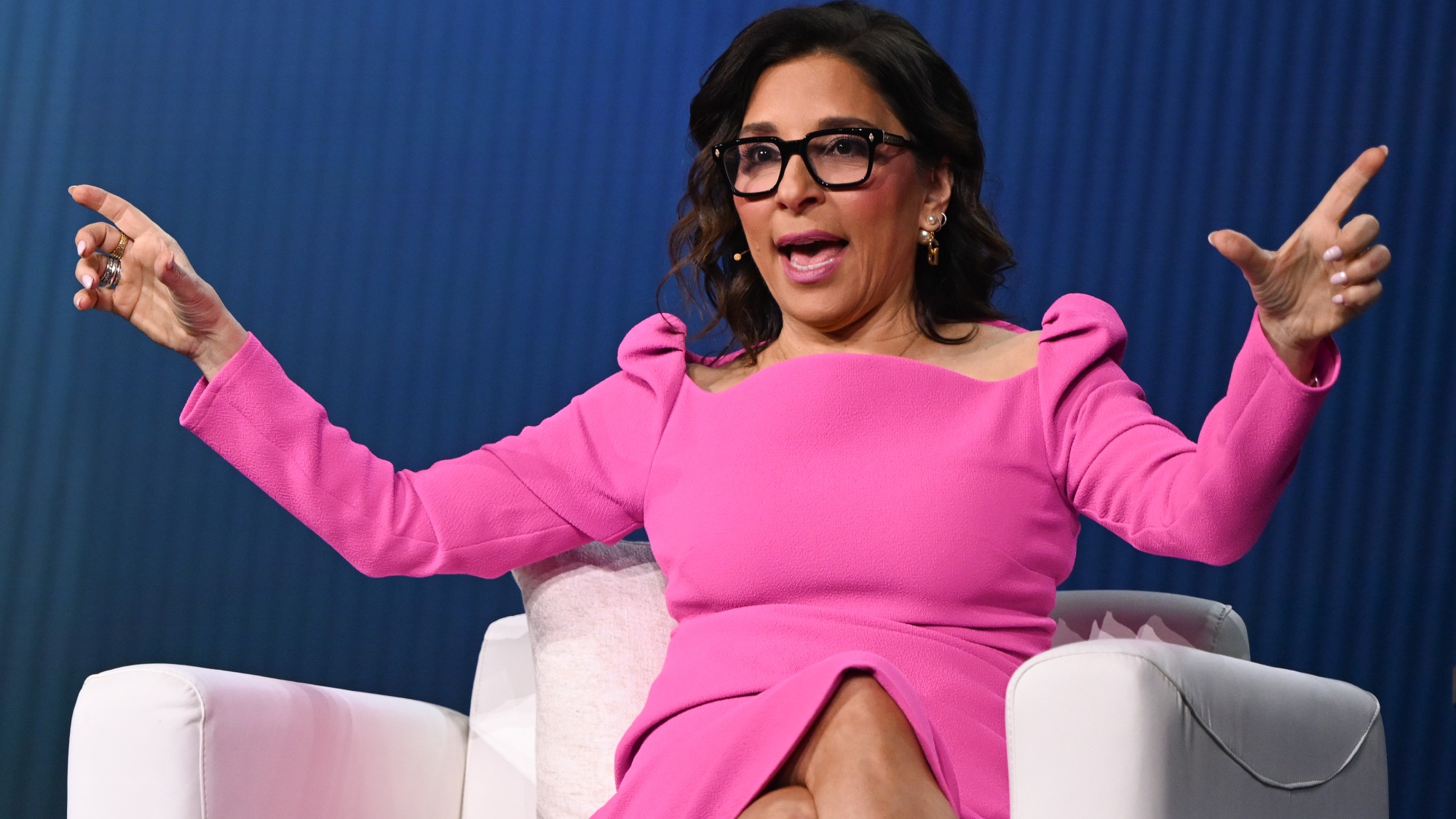What is hyperloop technology and how fast will it go?
German engineering students set new speed record for the futuristic transport concept

A free daily email with the biggest news stories of the day – and the best features from TheWeek.com
You are now subscribed
Your newsletter sign-up was successful
The high-speed train concept hyperloop is back in the spotlight after German engineering students set a new speed record for the transport system this weekend.
The so-called Warr Hyperloop team, from the Technical University of Munich, won the SpaceX hyperloop pod competition by designing and building a pod that achieved a top speed of 284mph (457kph). The students were competing against hundreds of other engineers at the annual contest, now in its third year, at the space company’s headquarters in Hawthorne, California, The Verge reports.
Competitors are free to design the pod as they wish, providing it fits inside the 0.75-mile long tube at the test track and is self-propelled, adds the BBC.
The Week
Escape your echo chamber. Get the facts behind the news, plus analysis from multiple perspectives.

Sign up for The Week's Free Newsletters
From our morning news briefing to a weekly Good News Newsletter, get the best of The Week delivered directly to your inbox.
From our morning news briefing to a weekly Good News Newsletter, get the best of The Week delivered directly to your inbox.
The Berlin university’s Warr Hyperloop win was their third in a row, having managed a time of 200mph (323kph) last year. The team hope that their pod design will be used when, or if, hyperloop trains are launched as a form of public transport.
What is hyperloop technology?
Hyperloop is a hi-tech, superfast transport concept that is the brainchild of Tesla and SpaceX chief executive Elon Musk.
The South African-born billionaire outlined the idea of the transport system in a 2013 research paper called Hyperloop Alpha, says tech news site ZDNet.
A free daily email with the biggest news stories of the day – and the best features from TheWeek.com
Musk envisages a train-like vehicle that can pass through near-vacuum tubes while levitating above a magnetic rail, a system referred to as maglev. The lack of friction resulting from the vacuum environment and maglev system means the vehicle can reach far higher speeds than standard trains.
However, Musk claims he is too busy running Tesla and SpaceX to explore the hyperloop concept, so he instead made the technology “available to anyone who wanted to develop it”, The Independent says. The annual SpaceX competition offers engineers the chance to showcase their ideas for the futuristic transport system.
The concept is also being developed by two other major firms, Hyperloop Transportation Technologies (HTT), based in California, and the Richard Branson-backed Virgin Hyperloop One.
HTT has yet to grab the headlines with new speed records, but according to news site CNBC, the company signed a deal with a Chinese government-owned transport company last week to build a test track in the province of Guizhou.
Virgin Hyperloop One, meanwhile, received a cash-injection of $50m (£38m) from Branson last December, bringing the company’s total funding up to $295m (£225m) since its inception in 2014.
How fast can it go?
In Musk’s 2013 research paper, the billionaire claimed that hyperloop systems would be capable of travelling at speeds of up to 620mph (1,000kph).
However, no one has managed to come close to that yet, with the 284mph run from the German students proving the fastest so far.
What’s more, while the students’ achievement is impressive, says CNet, their pod was “only about the size of a child”. Pods of the size required for transportation would cause more drag, potentially slowing them down.
Branson’s hyperloop firm has reportedly achieved a top speed of 240mph (385kph) during private testing using a full-scale transport pod, reports CNet.
“Which of these represents more progress toward the hyperloop dream” is still to be seen, the news site adds.
-
 El Paso airspace closure tied to FAA-Pentagon standoff
El Paso airspace closure tied to FAA-Pentagon standoffSpeed Read The closure in the Texas border city stemmed from disagreements between the Federal Aviation Administration and Pentagon officials over drone-related tests
-
 Political cartoons for February 12
Political cartoons for February 12Cartoons Thursday's political cartoons include a Pam Bondi performance, Ghislaine Maxwell on tour, and ICE detention facilities
-
 Arcadia: Tom Stoppard’s ‘masterpiece’ makes a ‘triumphant’ return
Arcadia: Tom Stoppard’s ‘masterpiece’ makes a ‘triumphant’ returnThe Week Recommends Carrie Cracknell’s revival at the Old Vic ‘grips like a thriller’
-
 Elon Musk’s pivot from Mars to the moon
Elon Musk’s pivot from Mars to the moonIn the Spotlight SpaceX shifts focus with IPO approaching
-
 Moltbook: the AI social media platform with no humans allowed
Moltbook: the AI social media platform with no humans allowedThe Explainer From ‘gripes’ about human programmers to creating new religions, the new AI-only network could bring us closer to the point of ‘singularity’
-
 Will regulators put a stop to Grok’s deepfake porn images of real people?
Will regulators put a stop to Grok’s deepfake porn images of real people?Today’s Big Question Users command AI chatbot to undress pictures of women and children
-
 Inside a Black community’s fight against Elon Musk’s supercomputer
Inside a Black community’s fight against Elon Musk’s supercomputerUnder the radar Pollution from Colossal looms over a small Southern town, potentially exacerbating health concerns
-
 X update unveils foreign MAGA boosters
X update unveils foreign MAGA boostersSpeed Read The accounts were located in Russia and Nigeria, among other countries
-
 What's Linda Yaccarino's legacy? And what's next for X?
What's Linda Yaccarino's legacy? And what's next for X?Today's Big Question An 'uncertain future' in the age of TikTok
-
 X CEO Yaccarino quits after two years
X CEO Yaccarino quits after two yearsSpeed Read Elon Musk hired Linda Yaccarino to run X in 2023
-
 Musk chatbot Grok praises Hitler on X
Musk chatbot Grok praises Hitler on XSpeed Read Grok made antisemitic comments and referred to itself as 'MechaHitler'